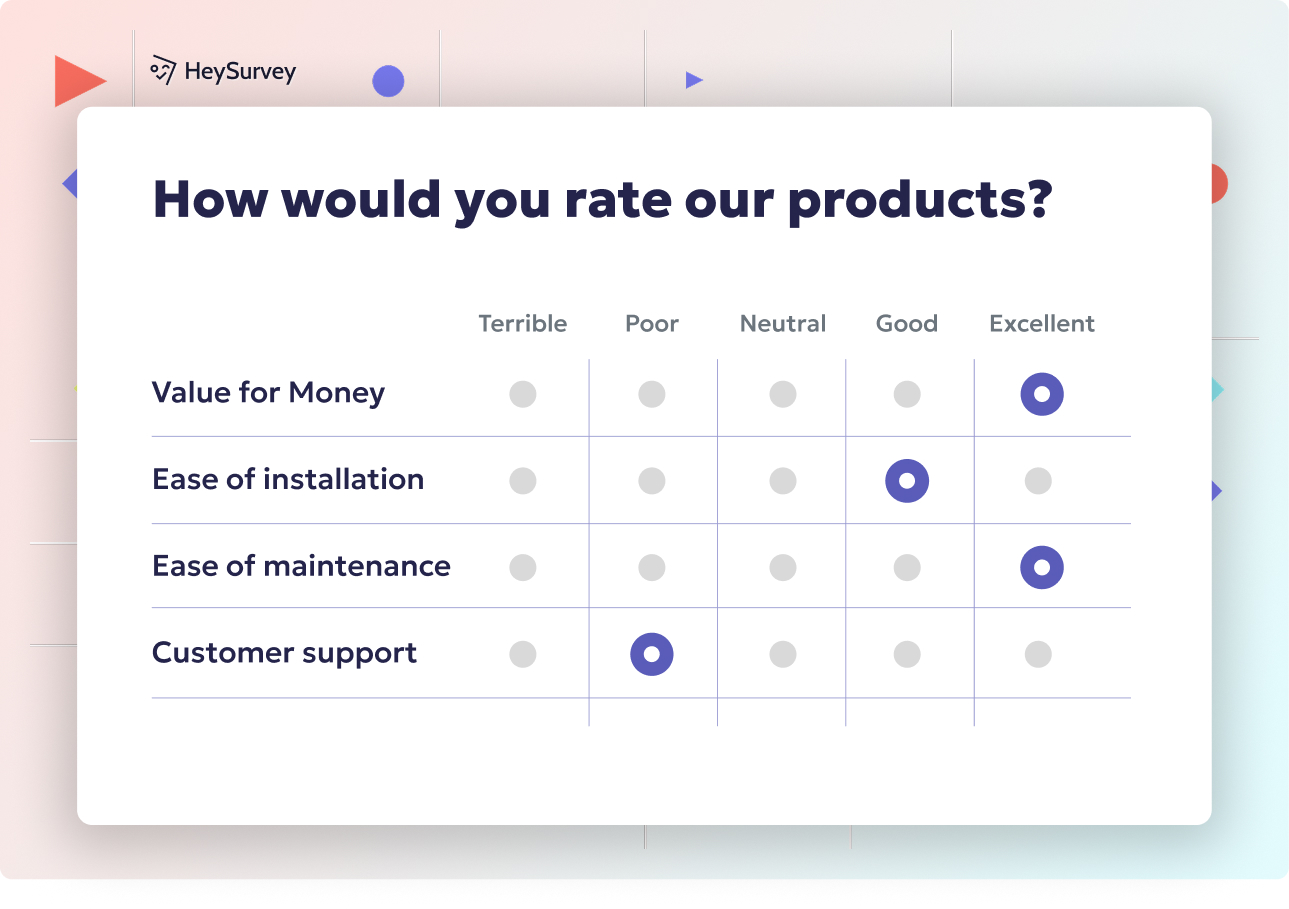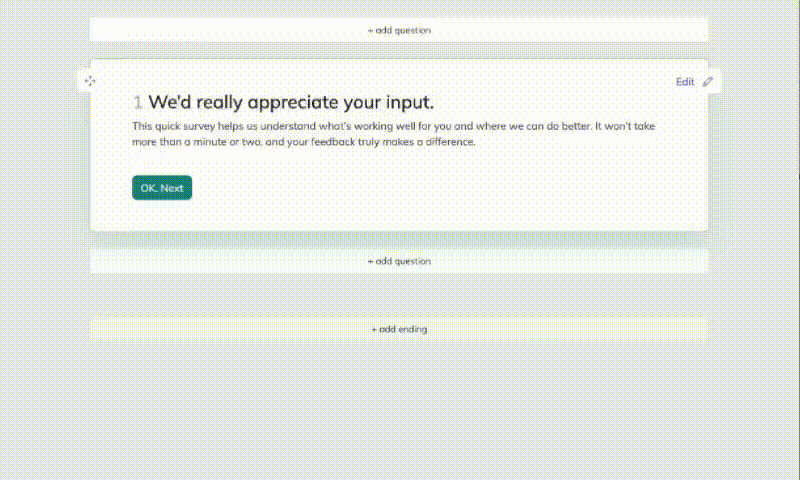31 HOS Survey Questions: Guide to Crafting & Optimizing Items
Explore a complete guide to HOS survey questions with 35+ sample items covering health, function, mental well-being, and more for better outcomes.
Medicare Health Outcomes Survey (HOS) questions are at the heart of how health plans track, measure, and improve patient-reported outcomes. These “health outcomes survey items” bring the patient’s voice into Star Ratings, NCQA requirements, and CMS value-assessment. Whether deployed at baseline, during a two-year follow-up, or as part of a health system’s population-health effort, HOS questions unlock more than just grades—they drive better care. Ready for a deep dive into Medicare HOS questions, how to use them, and clever tricks to boost both response rates and data quality? Let’s roll up our sleeves and jump in!
General Health Status Questions
Overview
General health status survey questions are the Swiss Army knife of patient-reported outcome measures (PROMs). At their core, these questions tap into how a patient perceives their health, both today and compared to the past. They ask for a big-picture view—no lab results or doctor’s notes needed—just what the member feels in their bones.
When you want to stratify risk quickly, these are your go-to survey items. Organizations use them in both the baseline HOS survey and every two-year follow-up, making them essential in any population-health toolkit.
Why & When to Use
You deploy these survey questions when you need:
- To identify members at risk for worsening health or hospitalizations.
- To assess changes over time, comparing current health status to a previous year.
- For required reporting for health plans in HOS and CMS Star Ratings.
They offer lightning-fast insight without bogging down the respondent. When a member checks “Poor” on their overall health, that’s a giant red flag—it tells care managers where to look next.
5 Sample General Health Status Survey Questions
- In general, would you say your health is: Excellent / Very good / Good / Fair / Poor?
- Compared with two years ago, how would you rate your health now? Better / Same / Worse.
- How satisfied are you with your overall physical health?
- How often does your health limit your daily activities?
- During the past 4 weeks, how would you rate your energy level?
Asking these simple questions can spark big changes—flagging those who need outreach, or validating gains for those getting healthier. Use them consistently to build powerful baseline data and track improvement. Overall health survey questions aren’t just required—they’re endlessly useful.
Self-reported health status is a strong predictor of future healthcare costs, enhancing risk assessment beyond administrative data. (ajmc.com)
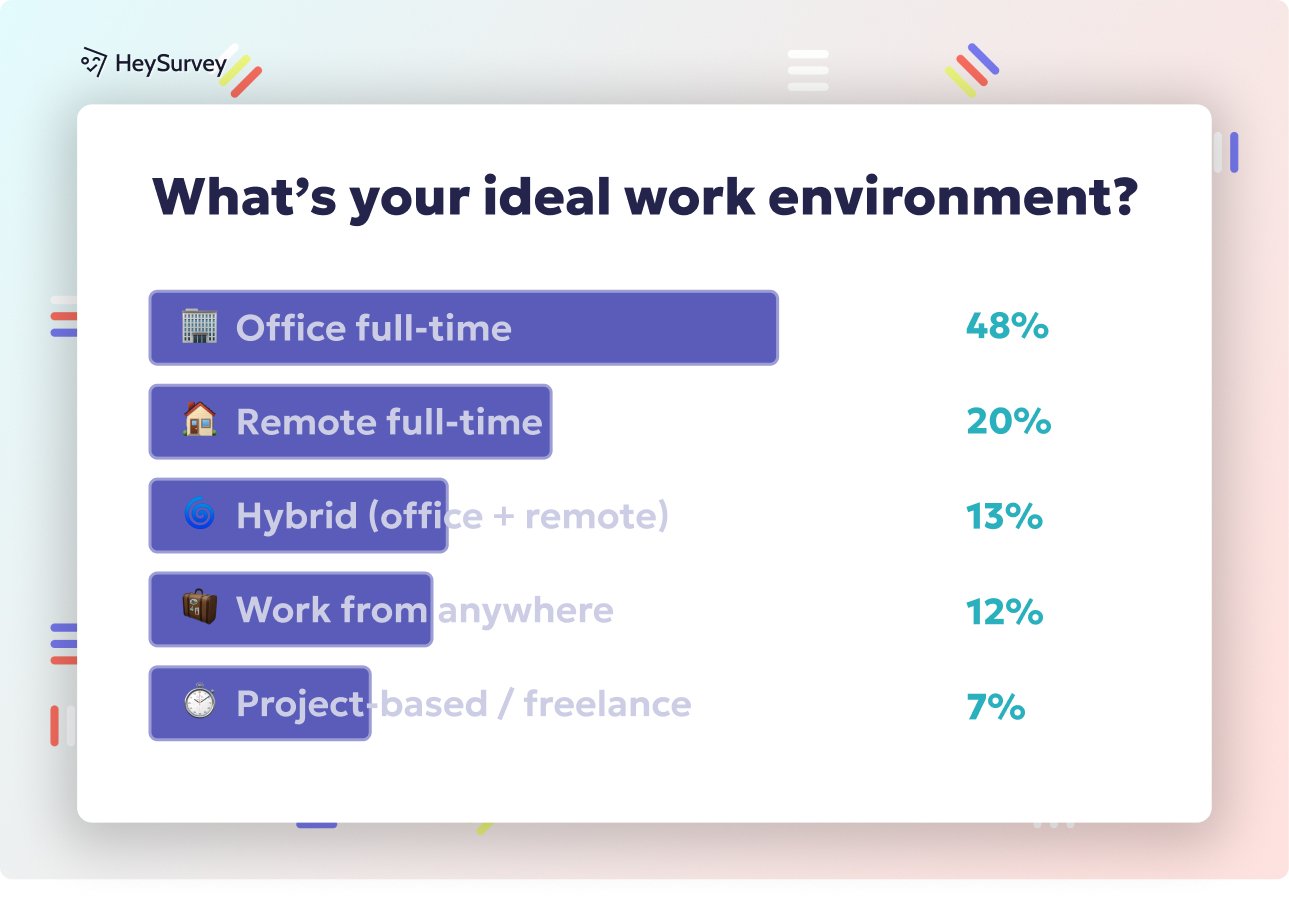
Creating your Medicare Health Outcomes Survey with HeySurvey is a breeze! Just follow these 3 simple steps to get your survey up and running—and then a couple of bonus tips to make it shine.
Step 1: Create a New Survey
Head to your HeySurvey dashboard and click Create New Survey. You can start from scratch with an Empty Sheet or pick a Pre-built Template designed for health outcomes surveys to save time. Name your survey something memorable like “Medicare HOS 2024” so it’s easy to find later.
Step 2: Add Questions
Once inside the Survey Editor, hit the Add Question button. Choose from question types like Choice for rating scales, Text for open answers, or Scale for Likert-type questions. Input your HOS question text, set questions as required to ensure answers, and add descriptions if helpful. For each question, you can even include images or use markdown formatting to make things clearer.
Tip: Use branching logic to skip irrelevant questions based on prior answers—keeping the survey short and tailored.
Step 3: Publish Your Survey
When your questions look good, click Preview to see the respondent view. Tweak the design if needed with the Designer Sidebar—change colors, fonts, or layouts to fit your brand. Ready? Click Publish to get a shareable link or embed code. Note: you’ll need a free HeySurvey account to publish and collect responses.
Bonus Step 1: Apply Branding
Make the survey uniquely yours by uploading a logo in the Branding and Settings Panel at the top left. Customize colors and backgrounds in the Designer Sidebar to match your organization’s style and create a seamless experience.
Bonus Step 2: Define Settings or Skip Into Branches
Set start/end dates, response limits, or redirect URLs in the Settings Panel. Use branching to create customized paths based on member responses—so only relevant health outcome questions appear. This makes your survey friendlier and boosts completion rates.
Ready to start your Medicare Health Outcomes Survey easily? Click the button below to open a HOS template pre-loaded with everything you need and start editing right away!
Physical Functioning Questions
Overview
Physical functioning questions are the muscle and movement detectives in any Medicare HOS set. They dig deep into what members can do, day in and day out. These questions reveal the reality of mobility, Activities of Daily Living (ADLs), and instrumental ADLs like shopping or housekeeping.
They uncover those subtle (and sometimes not-so-subtle) limitations that drive fall risk, inform rehabilitation plans, and determine eligibility for home care or additional services. Don’t skip these: they’re often the difference between a generic survey and actionable data.
Why & When to Use
Turn to physical function survey questions when you need to:
- Determine if a member might need a walker, cane, or home modifications.
- Uncover early signs of new or worsening disability.
- Fulfill CMS and HEDIS requirements for members with chronic conditions.
- Guide care managers in prioritizing patient interventions, or for required reporting in disease management programs.
They’re especially valuable after hospital discharge or in annual care plan updates—whenever function could have shifted.
5 Sample Physical Functioning Survey Questions
- Does your health limit you in vigorous activities such as running or lifting heavy objects?
- Are you able to climb one flight of stairs without resting?
- How difficult is it for you to bathe or dress yourself?
- In the past 12 months, have you needed assistance with grocery shopping?
- Do you use assistive devices (cane, walker, wheelchair) to move around your home?
Members struggling with these tasks are quietly waving a red flag. Physical function questions help you spot those signals fast—so you can intervene before a major decline. If you’re building a mobility assessment survey, these items are always front-row.
In a study of Medicare Fee-for-Service recipients, 27% reported limitations in walking, highlighting significant mobility challenges among older adults. (bmcgeriatr.biomedcentral.com)
Mental Health & Emotional Well-being Questions
Overview
Mental health and emotional well-being questions are the heart and soul of a comprehensive health outcomes survey. They pull back the curtain on mood, stress, anxiety, and social connection. With depression and social isolation strongly linked to readmissions and medication non-adherence, mental health is not optional—it’s required territory for HOS.
Plans need to report these findings, especially for Star Measure performance, including Depression Screening and Follow-up indicators. Emotional health data is gold for care navigation.
Why & When to Use
Reach for these questions:
- To benchmark member well-being and screen for high-risk mental health issues.
- When CMS reporting requires you to demonstrate depression evaluation and follow-up.
- If you're developing effective interventions for medication adherence, case management, or support groups.
- To catch early warning signs—long before a crisis call.
Emotional health data can light up dark corners of a member’s life that standard medical charts never see.
5 Sample HOS Mental Health Question Examples
- Over the last 2 weeks, how often have you felt little interest or pleasure in doing things?
- How often have you felt nervous, anxious, or on edge?
- Do you have someone you can count on for emotional support?
- How frequently do feelings of sadness interfere with your daily life?
- Have you talked with a healthcare professional about mental health in the past year?
When you find patterns of isolation or increasing sadness, get ready to act. These HOS mental health question examples are essential. They connect data to genuine member need—and prevent invisible suffering.
Chronic Conditions & Symptom Management Questions
Overview
Chronic-condition survey questions go for the details. They focus on the day-to-day management of things like hypertension, diabetes, COPD, and ongoing pain or symptoms. Medicare HOS requirements make these questions central for detecting care gaps and identifying opportunities for patient support.
Chronic illness management isn’t one-size-fits-all, and neither are these vital questions. You want to know if members are actually managing—and if not, where things might be going sideways.
Why & When to Use
Use these questions when you need to:
- Pinpoint poorly controlled conditions or missed self-care steps (think blood pressure, glucose, or medication routines).
- Align with HEDIS-mandated disease management metrics.
- Discover which members need a referral to a care manager, pharmacist, or home health provider.
- Track how well population-health interventions are delivering on outcomes.
By using chronic-condition survey questions in your HOS, you ensure your care plans actually reflect lived experiences—not just chart notations.
5 Sample Chronic-Condition Survey Questions
- Do you monitor your blood pressure at home at least once a week?
- How confident are you in managing your blood sugar levels?
- During the past 6 months, how many COPD exacerbations have you experienced?
- How would you rate your average pain level in the last month?
- Have you received a flu shot within the past year?
Consistent use of these questions lets you see—at a glance—where there are gaps. Use responses to adjust disease management programs and drive whole-population improvement. Chronic-condition survey data brings clarity to an often messy care landscape.
Chronic conditions are prevalent among Medicare beneficiaries, with over 75% reporting at least one, highlighting the importance of tailored management strategies. (pubmed.ncbi.nlm.nih.gov)
Health Behavior & Lifestyle Questions
Overview
Health behavior and lifestyle questions are the secret sauce in predicting health risks—and improving outcomes. These questions cover daily habits: physical activity, nutrition, tobacco and alcohol use, and sleep. Lifestyle behaviors drive 40% of health outcomes, but are usually invisible unless you ask.
Personalized coaching, preventative programs, and tailored interventions all start with these insights. Think of them as the foundation for member engagement that actually works.
Why & When to Use
Reach for these questions when:
- Designing health coaching, wellness incentives, or behavioral interventions.
- Addressing modifiable risk factors for chronic disease or hospital readmission.
- You need to tailor outreach based on actual, not assumed, behaviors.
- Reporting into HEDIS or population health dashboards.
Lifestyle questions for health outcomes surveys help you connect the dots between daily choices and long-term results.
5 Sample Lifestyle Survey Questions
- On average, how many days per week do you engage in at least 30 minutes of physical activity?
- How many servings of fruits and vegetables do you eat daily?
- Do you currently smoke cigarettes or use vaping products?
- How many alcoholic drinks do you consume in a typical week?
- How would you describe your average nightly sleep duration?
Members might hide unhealthy habits—but structured, nonjudgmental survey questions catch what clinic visits often miss. With this data, you can spark targeted coaching calls and bring real-world change. Lifestyle responses drive the engine of prevention.
Patient Experience & Access to Care Questions
Overview
Access and experience questions add texture to your health outcome data. They reveal if your members can actually get the care, medications, or specialist help they need. Beyond clinical outcomes, patient access survey questions are key for Star Ratings and for redesigning delivery based on what members really face.
These items often surface hidden gaps in your network, scheduling snafus, or communication problems that could quietly tank satisfaction scores.
Why & When to Use
Deploy these questions when you want to:
- Complement CAHPS and double-check that reported “improvements” match what members actually feel.
- Identify where care coordination or access issues are lurking.
- Collect actionable data for quick-win improvements (think online scheduling or telehealth troubleshooting).
- Inform your Star Ratings strategy by nailing the access and experience domains.
Member feedback on these questions is rocket fuel for quality improvement programs—and for a much shinier CMS report card.
5 Sample Patient Access Survey Questions
- How easy is it to schedule an appointment with your primary care provider?
- After your last visit, did you understand the instructions about follow-up care?
- How satisfied are you with the communication between your medical specialists?
- Have you delayed filling a prescription due to cost in the past 12 months?
- How comfortable are you using telehealth services for routine consultations?
Use their answers to trace bottlenecks and smooth out the wrinkles in your care delivery pipeline. Access questions turn patient irritation into improvement blueprints. Never let a “hard to schedule” complaint go unchecked.
Dos and Don’ts for Crafting High-Impact HOS Survey Questions
Dos
Writing high-impact HOS survey questions takes as much art as science. To get honest, actionable answers, keep these best practices up your sleeve:
- Write in clear, everyday language—aim at a sixth-grade reading level or lower.
- Specify recall periods (“During the past 2 weeks…”) to avoid memory fog.
- Pilot-test survey questions with a small group before rolling out to the masses.
- Randomize question order for similar items to minimize response bias.
- Use branching logic with care—don’t accidentally skip the good stuff.
These practices boost both your data quality and your response rates.
Don’ts
Steer clear of these common traps:
- Don’t write double-barreled questions (e.g., “How well do you eat and exercise?”).
- Avoid fuzzy timeframes like “lately” or “recently.”
- Scrap medical jargon—members tune out at “polypharmacy” and “glycemic control.”
- Don’t lead respondents with obvious “right” answers.
- Keep your survey under 25 minutes to prevent fatigue and incomplete responses.
Short, clear, and focused questions always outperform clever, convoluted ones.
UX Best Practices
The user experience is where completed surveys are won or lost:
- Always design for mobile devices first; that’s how most members will complete the survey.
- Include a visible progress bar—everyone wants to know how close they are to done.
- Use mixed modes: let people choose between mail, phone, and online to maximize reach.
Small touches—like skipping questions that don’t apply—or letting members easily save and return, can skyrocket your completion rates. A great survey experience equals better data.
Turning HOS Data Into Action: Analysis & Next Steps
Interpreting Scores
Now, let’s turn numbers into insight! Interpreting HOS scores involves more than tallying boxes. Use both Physical Component Summary (PCS) and Mental Component Summary (MCS) scores to compare your group to national benchmarks. Adjust for case mix to ensure fairness—what looks “bad” at first glance could simply reflect a sicker population.
Benchmarking and Improvements
Set your sights on the HOS national norm; see how your plan ranks against peers. Spot outliers—good or bad—and use that data to craft your next care interventions. Poor pain scores? Time to ramp up outreach. Low access marks? Rethink your scheduling system. Real improvement begins here.
Interventions and Feedback Loops
Use your survey findings to:
- Trigger targeted care management calls.
- Refer members to social support or community resources if social needs pop up.
- Share trends with clinician partners—so improvement plans are truly member-centered.
And don’t forget the feedback loop—tell your members (and your clinicians!) what changed because of their input. Closing the loop builds trust and keeps those response rates high.
Call to Action
Ready to level up? Download a free HOS question library and analytics template to supercharge your next survey cycle. Make your data work for you—and improve Medicare Star Ratings while you’re at it.
The right HOS questions transform surveys from paperwork into powerful engines of change. Keep your questions sharp, your data actionable, and your feedback loop humming. Onward to better outcomes—one member answer at a time!
Related Health Survey Surveys
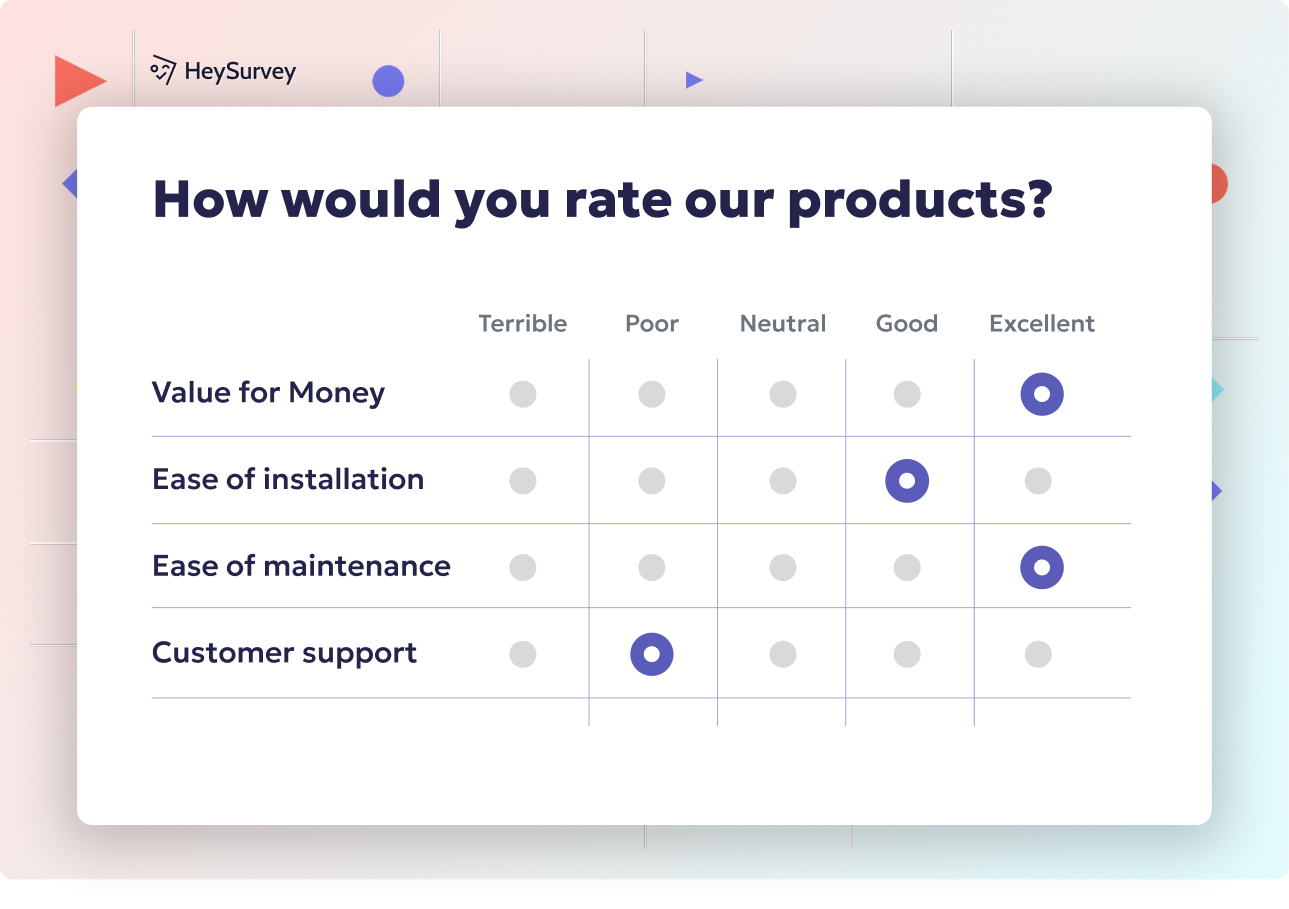
30+ Health Care Satisfaction Survey Questions: Templates & Tips
Explore 30 expert health care satisfaction survey questions across six types to boost patient fee...

31 Body Image Survey Questions: Types, Usage & Best Guide
Discover 35 expert body image survey questions across 7 proven types to measure body satisfaction...
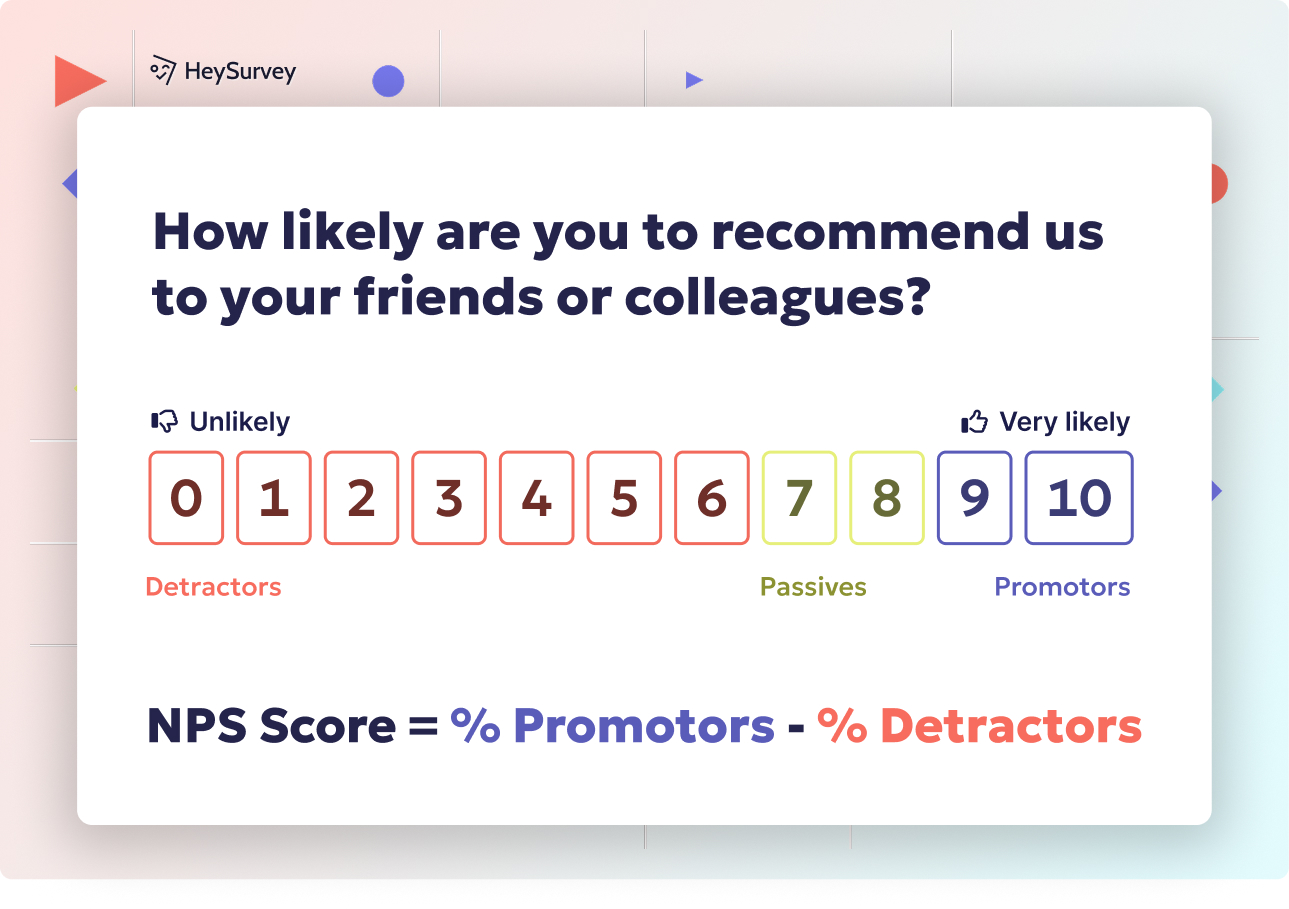
31 Essential Domestic Violence Survey Questions: Types & Uses
Explore 30+ domestic violence survey questions covering types, uses, samples, and best practices ...
